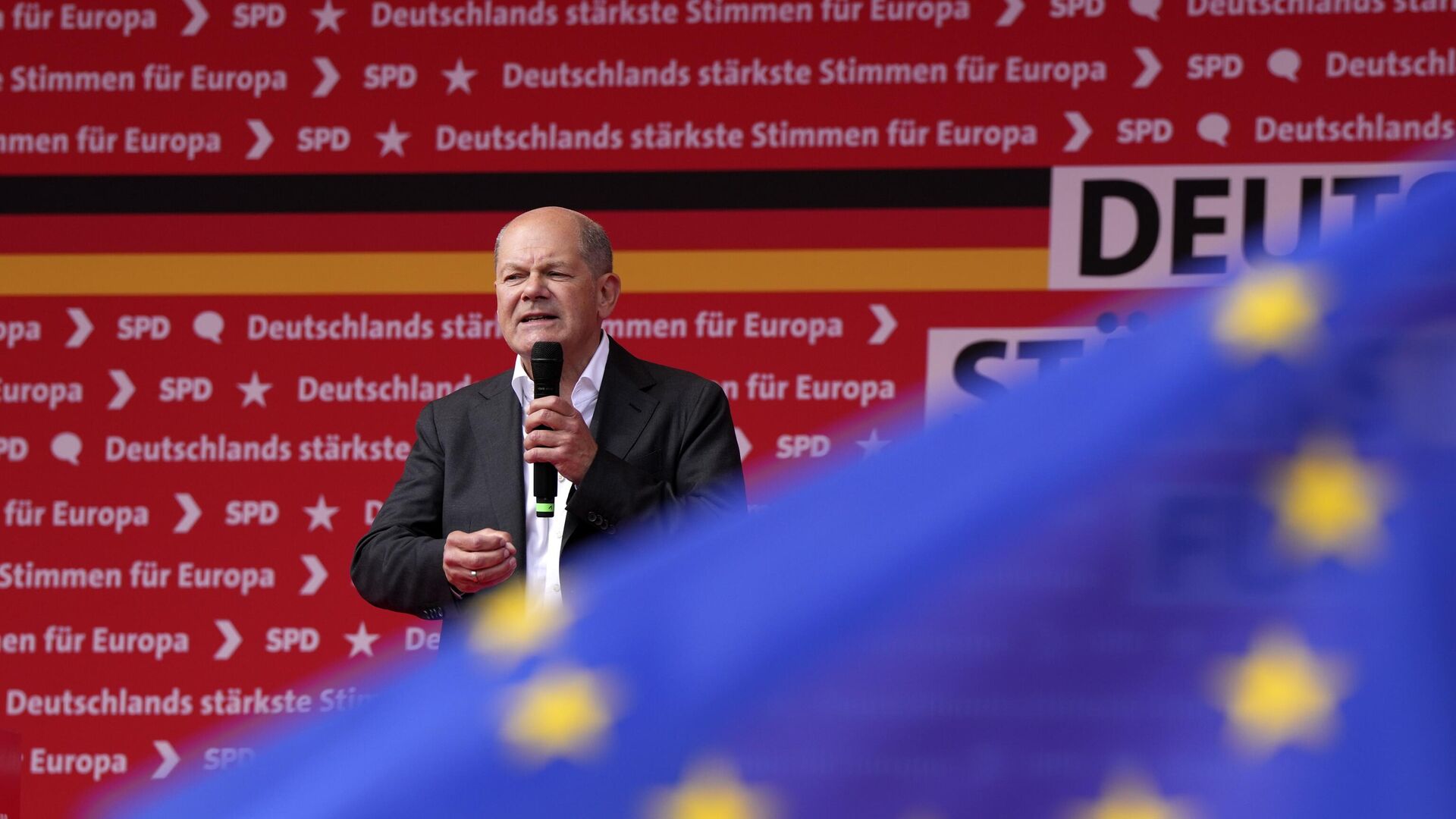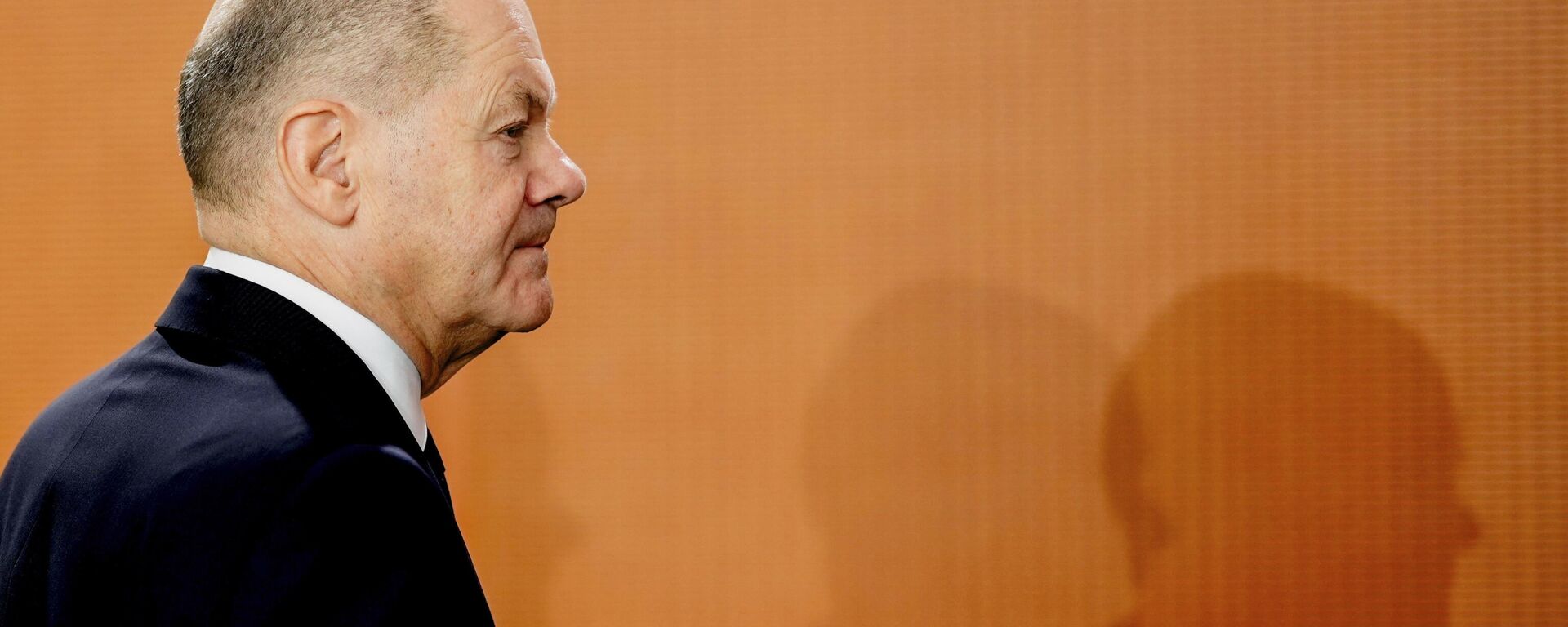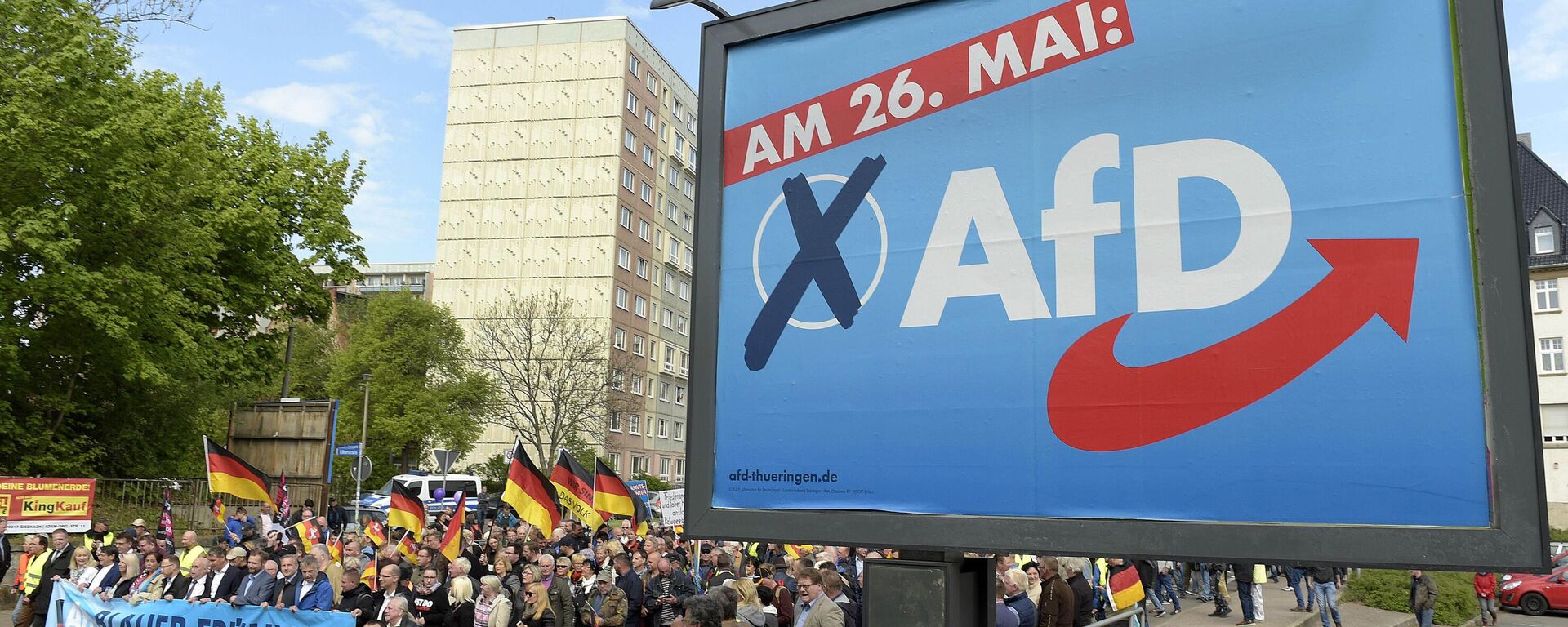SPD Wins State Election After Brandenburg Governor Distances Itself From Unpopular Scholz

© AP Photo / Martin Meissner
Subscribe
Germany’s SPD party experienced a shift in luck just three weeks after the country’s right-wing party made strides in elections in eastern Germany. However, the AfD still came in a close second while the new leftist BSW party rode to third place.
German Chancellor Olaf Scholz’s Social Democrats (SPD) succeeded in their goals to push back against the growing popularity of the right-wing Alternative for Germany (AfD) during a state election in Brandenburg on Sunday. The party won by a slim margin even though it has governed the state since reunification in 1990.
The SPD won by 30.9% of the vote, while the AfD took home 29.2%, Reuters reported citing results by the State Electoral Commissioner. The SPD’s success, however, was not credited to Scholz, but to the state governor, Dietmar Woidke, who is more popular than the chancellor amongst voters and who distanced himself from Scholz during the campaign.
George Szamuely, a senior research fellow at the Global Policy Institute, joined Sputnik’s The Backstory on Monday to discuss the political changes which are underway in Germany.
“It was clear what was going on in Brandenburg. Basically, the establishment parties got together to ensure that the Alternative of Deutschland (AfD) was kept out of power. So, once they saw the writing on the wall and then they saw that the AfD was leading in the polls, then they had to decide, well, how do we stop it? And the best way to stop it was through the Social Democrats,” Szamuely explained.
“So, essentially, what happened in Brandenburg is similar to what happened in the French election a couple of months ago. There was a lot of tactical voting. And so, the Christian Democrat prime minister of Saxony, he came to Brandenburg and he urged Christian Democrat voters to support the Social Democrats because the Social Democrats were the ones that were the most likely to beat the AfD in the polls,” he added.
“And, that's what happened. It was a very close election, but they just got over the finish line,” the analyst said. “So, again, as in France, this was a negative vote. This wasn't in any way a vote for any agenda, but it's a vote to keep out what they call the far-right.”
Two-thirds of Germans do not support the reappointment of Chancellor Olaf Scholz as the SPD candidate for the next elections, Sputnik reported earlier this month, citing a YouGov survey for the German newspaper. An overwhelming 68% of respondents reportedly oppose Scholz’s renomination as a candidate for chancellor, while 20% support the chancellor’s candidacy.
About 60% of those who voted for the SPD in 2021 also said they would no longer consider Scholz to be a suitable candidate. However, Scholz has confidently asserted that the three-party left-green coalition government would serve out its term and that he and the SPD will win in the 2025 elections.
“German politics has suddenly changed. It used to be this really very, very predictable setup,” the analyst explained. “And then [the parties] would just simply play musical chairs every five, 10, 15 years. They would change, and then the Social Democrat, Free Democrat government, or sometimes you'd have a Christian Democrat, free Democrat government. It was very, very stable, very, very boring, but that's not Germany any longer. That's gone.”
“Because what happened in Brandenburg and happened, of course, in the other, in Saxony and Thuringia, is that you now have this, the AfD, and then, of course, you also have the Bündnis Sahra Wagenknecht, that party, which is the sort of the kind of left-wing populist party,” he said. “...the establishment parties and the anti-establishment parties have the same number of seats now in this Brandenburg state parliament. So that's already a huge development. This is no longer, you know, your grandfather's Germany. This is a new Germany.”
Sahra Wagenknecht started the Sahra Wagenknecht Alliance (BSW) in January, a left party that has grown in popularity after it came in third in three states in elections in early November, as Germany’s more mainstream parties are losing support. The political newcomer has voiced her opinion about the Nord Stream pipeline and said that Germany knew about the attack in advance, Szamuely previously told Sputnik. The AfD, as well as the Sahra Wagenknecht Alliance (BSW), have called for an end to the shipment of weapons to Kiev.
“...the German political establishment, which has been all gung-ho on behalf of Ukraine and some of these characters. And so, sometimes you get these somewhat exuberant Ukrainian who go on German television and say, ‘oh, you know, Stepan Bandera, he was a great Ukrainian hero’. And now the Germans are listening to this and they think, ‘whoa, whoa, whoa. I mean, Bandera, that's a Nazi collaborator,’” the analyst explained.
Germany’s right-wing party, the Alternative für Deutschland (AfD) received an unprecedented number of votes earlier this month, pushing the party to second place behind the conservative Christian Democratic Union party (CDU) in Saxony with 30.6% of the vote.
The party’s popularity is partly in thanks to the country's economic woes, as well as the country's ongoing migration crisis.
The AfD has suggested that increasing arms supplies and financial assistance to Kiev will not help end the conflict in Ukraine. Tino Chrupalla, the co-leader of the right-wing party, said in an interview on Saturday that there is “always readiness for negotiations”, Sputnik reported citing a German newspaper.
“I mean, how long an apparently great nation, obviously, the biggest economic powerhouse of Europe, how long can this great nation endure this kind of humiliation? And then, how long can this great nation go on being pushed into a war that obviously the German people don't want?” Szamuely said.
“So, German taxpayers have to pay more and more. They pay for Ukraine. They're paying for all the migrants, and they're not really getting anything for it. They have to pay more and more for their energy supplies,” the analyst explained. “So, you know, that's, you think, that's what the German political establishment needs to be addressing. Instead, they're just so obsessed about the AfD, which isn't in power and has never been in power. It's not the AfD that has brought Germany to this sorry situation.”



